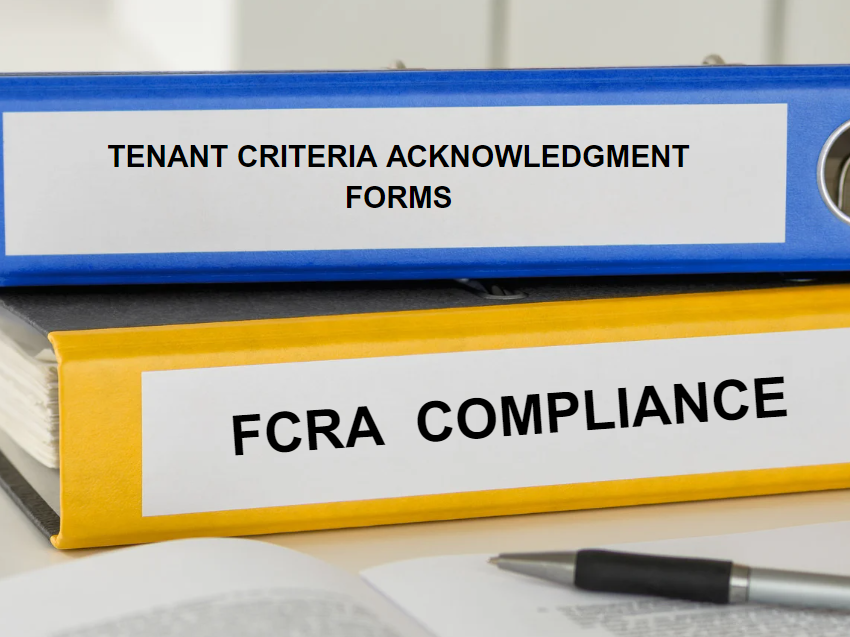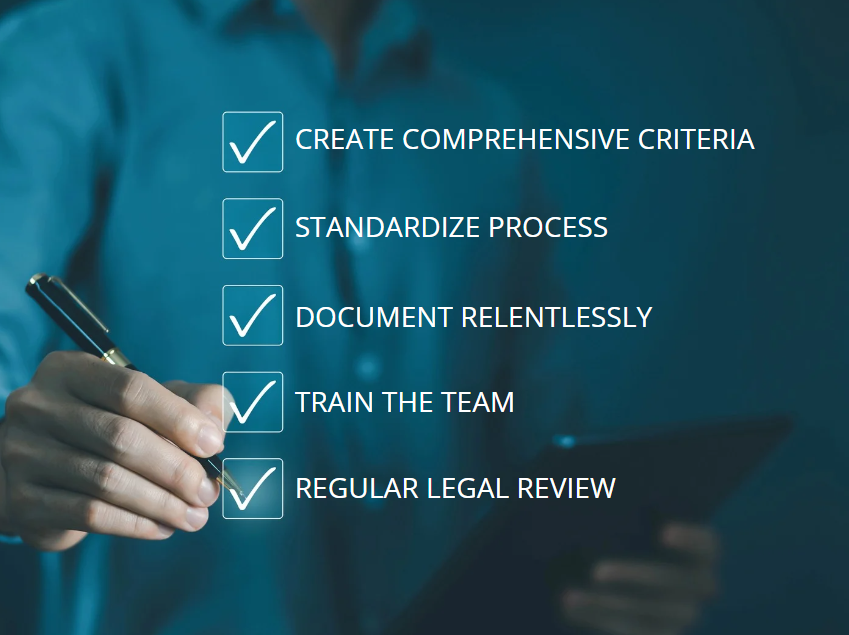
Texas landlords face a unique challenge: navigating screening laws that differ significantly from other states while maintaining efficient operations. With no cap on application fees but strict disclosure requirements under Texas Property Code 92.3515, one misstep can cost you refunds, legal troubles, and valuable time.
The good news? Understanding Texas screening laws isn't complicated when you know what to focus on. This guide cuts through the confusion, providing exactly what you need to screen tenants legally and efficiently in the Lone Star State.

Texas is still the state with the fastest population increase in the country, drawing both residents and investors. However, this expansion raises questions about rental practices. Due to penalties imposed on landlords for clearly preventable infractions, recent enforcement actions have brought attention to the significance of compliance.
The stakes are clear:
Understanding these laws isn't just about avoiding problems—it's about creating a professional, transparent process that attracts quality tenants and protects your
investment.

Tenant selection criteria disclosure forms the cornerstone of Texas screening law. Unlike many states, Texas mandates specific written disclosures that must be provided before or at the time of application.
What must be disclosed:
This isn't a suggestion—it's the law. Failure to provide this written notice triggers automatic refund obligations.

Texas law requires landlords to respond to rental applications within seven days. This timeline creates pressure to screen efficiently while maintaining thoroughness. Missing this deadline doesn't just frustrate applicants—it can be used as evidence of discriminatory practices.
Managing the timeline:
While Texas doesn't limit application fees, screening cost transparency is mandatory. Fees must reflect actual screening costs, typically ranging from $15-90.
Common screening costs include:
Charging significantly above actual costs invites scrutiny and potential legal challenges.
A crucial issue that many landlords overlook is that Texas law makes a distinction between deposits and application fees.
Application Fees:
Application Deposits:
Mixing these concepts creates confusion and potential legal violations. Keep them clearly separated in all communications and documentation.

Criminal background check Texas rental laws require careful navigation. Texas mandates written disclosure of criminal history criteria, but that's just the beginning.
HUD fair housing guidelines prohibit blanket bans on applicants with criminal records.
Instead, Texas landlords must:
Implement Individualized Assessment:
Avoid Automatic Disqualifiers:
Using arrest records in screening decisions is illegal under HUD guidance. Only convictions can influence rental decisions, and even then, only through a case-by-case assessment requirement.
Safe screening practices:

Written consent background check requirements under both Texas law and FCRA create a two-layer compliance obligation.
The tenant criteria acknowledgment form must include specific language: "Signing this acknowledgment indicates that you have had the opportunity to review the landlord's tenant selection criteria."
Essential elements:
FCRA compliance Texas landlords must also secure separate authorization for credit and background checks. This creates a dual-consent requirement that trips up many landlords.
Best practice approach:

Income verification requirements in Texas allow flexibility in methods but demand consistency in application.
Acceptable verification methods:
Common income standards:
Remember: income requirements must apply equally to all applicants to avoid discrimination claims.
Credit history screening laws permit credit checks but require careful handling of the information.
Establish clear thresholds:
Consider mitigating factors:
When credit influences negative decisions, federal adverse action notice requirements apply in addition to Texas laws. This doubles your compliance obligation.

Rental history verification Texas extends beyond confirming addresses.
Effective verification includes:
Previous Landlord Contacts:
Red Flags to Document:
Verification Best Practices:

Discrimination prohibition screening requirements apply throughout the process. Texas reinforces federal protections while adding state-specific elements.
Federal protections include:
Protected class considerations must influence every screening decision. Document objective, business-related reasons for all decisions.
Screening criteria consistency prevents disparate impact claims:
Create Uniform Standards:
Document Everything:

Application fee refund requirements create a significant compliance trap.
Texas law mandates refunds when:
Avoiding refund obligations:
Retaliatory practices prohibition extends to the screening process.
Landlords cannot:
Document legitimate, business-related reasons for all decisions to defend against retaliation claims.
While state law provides the framework, Texas cities may impose additional requirements:
Research local ordinances in your specific area to ensure complete compliance.

Modern platforms transform compliance from a burden to a competitive advantage:
Notice of eligibility requirements automation ensures:
Technology enables compliance with the seven-day requirement while maintaining thoroughness:

Develop detailed, written criteria covering:
Use the same process for every applicant:
Maintain records of:
Everyone involved in screening must understand:
Laws change. Schedule regular reviews of:
Learn from others' mistakes:
Despite best efforts, issues arise. When they do:
Immediate Steps:
Corrective Actions:
Navigating Texas tenant screening laws doesn't have to be overwhelming. Rent With Clara transforms complex compliance into a seamless process that protects your business while attracting quality tenants.
Our platform delivers instant comprehensive reports that exceed all Texas requirements. With automated tenant selection criteria disclosure, built-in consent management, and timeline tracking, you'll never miss a compliance requirement again.
What sets us apart? We understand Texas. Our system is configured specifically for Texas Property Code requirements, ensuring every screening meets state and federal standards. The platform's transparency features show applicants exactly what's being evaluated, building trust while maintaining compliance.
Best of all, Rent With Clara remains completely free for landlords. No subscriptions, no hidden fees—just transparent, compliant screening that protects your properties and respects applicant rights.
Ready to screen with confidence? Experience how Rent With Clara makes Texas compliance simple, turning legal requirements into competitive advantages that fill your properties faster with qualified tenants.